Abstract
[14C]hydrocarbons were utilized as a means of estimating the hydrocarbon-degrading potential of bacteria in estuarine and marine environments. Evaporation of the hydrocarbons must be considered in estimates of oxidation. Amount of mineralization of [14C]hexadecane can be equated with the total number of petroleum-degrading bacteria and the percentage of the total heterotrophic population, which they represent. Mineralization activity was found to be related to the activity of the bacterial populations during in situ incubation. Rates of mineralization were observed, as follows, for [14C]hexadecane greater than [14C]naphthalene greater than [14C]toluene greater than [14C]cyclohexane. Increased rates of uptake and mineralization were observed for bacteria in samples collected from an oil-polluted harbor compared with samples from a relatively unpolluted, shellfish-harvesting area, e.g., turnover times of 15 and 60 min for these areas, respectively, using [14C]hexadecane.
Full text
PDF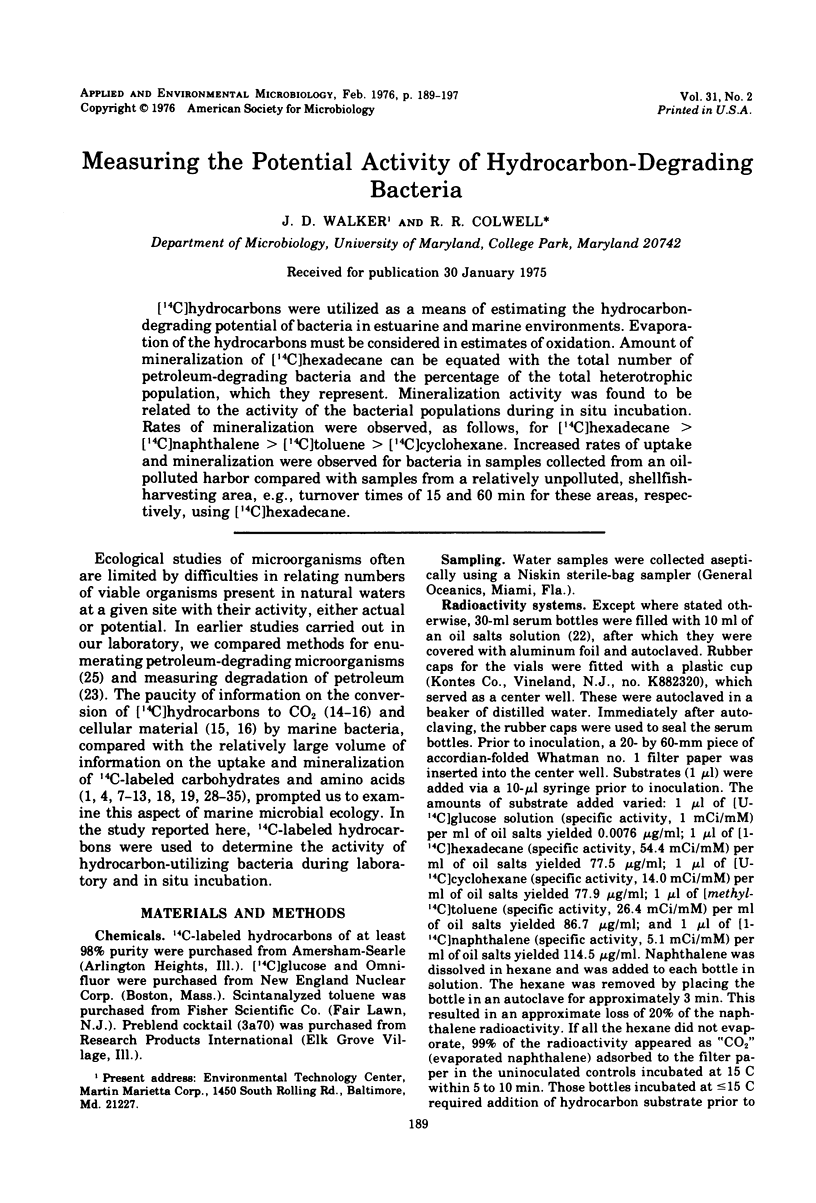
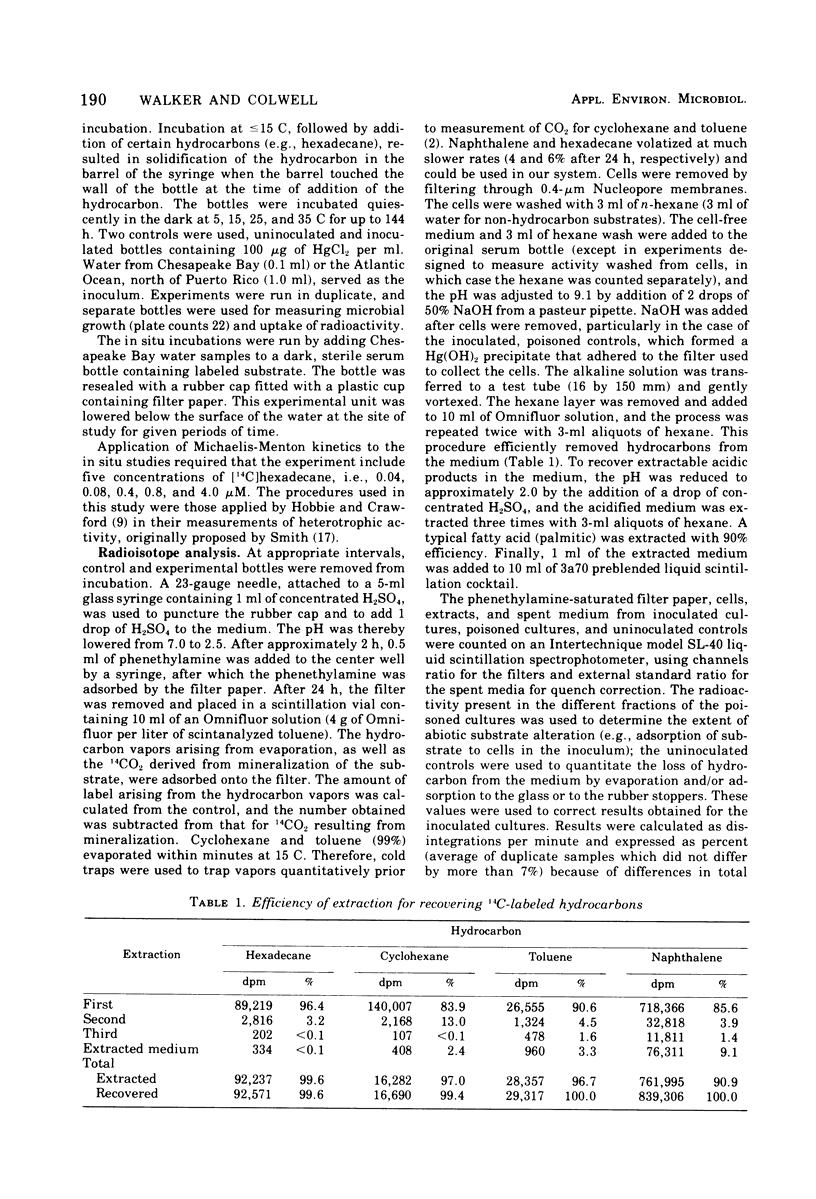
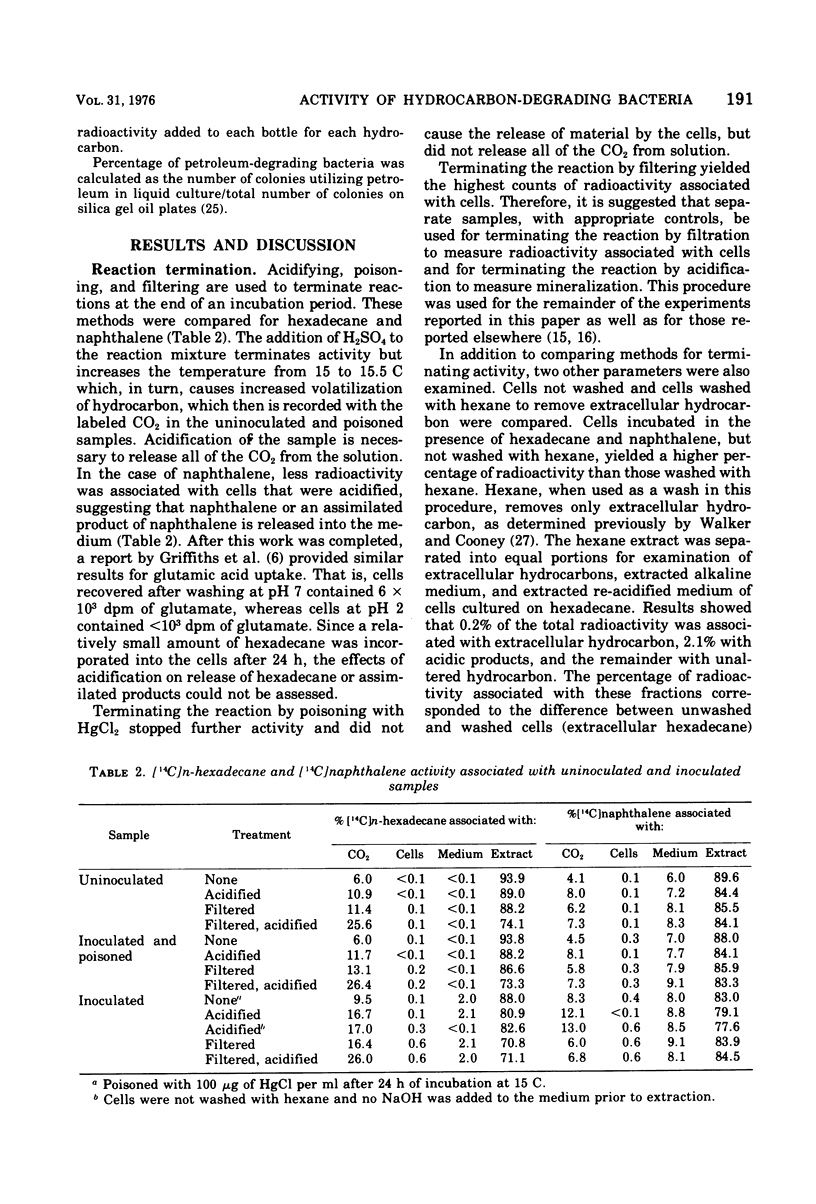
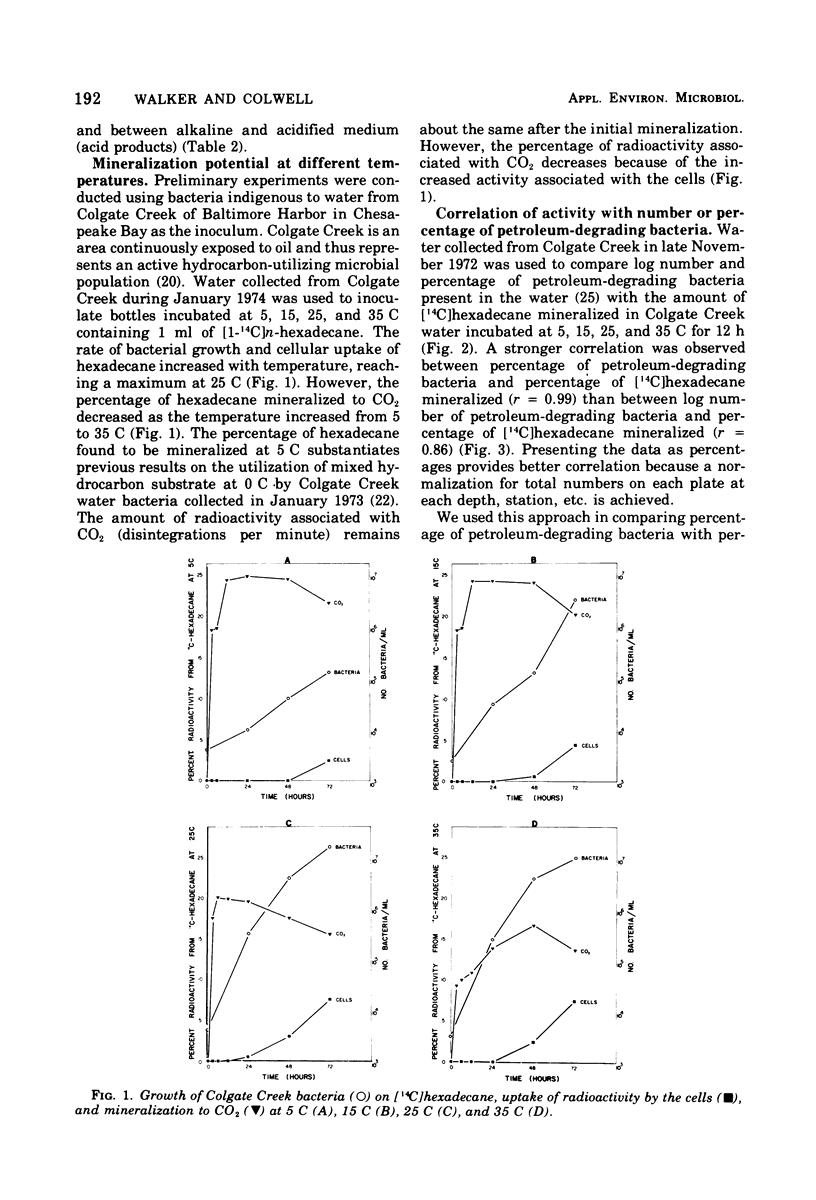
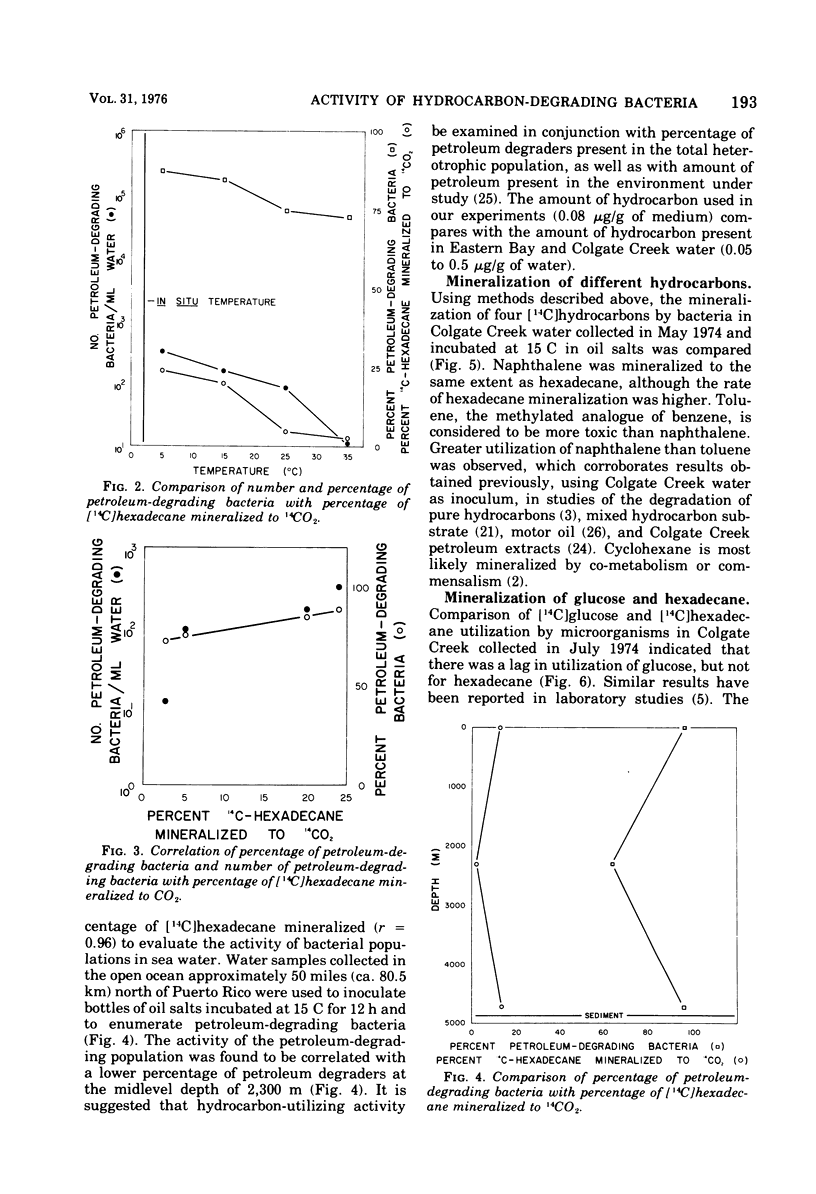
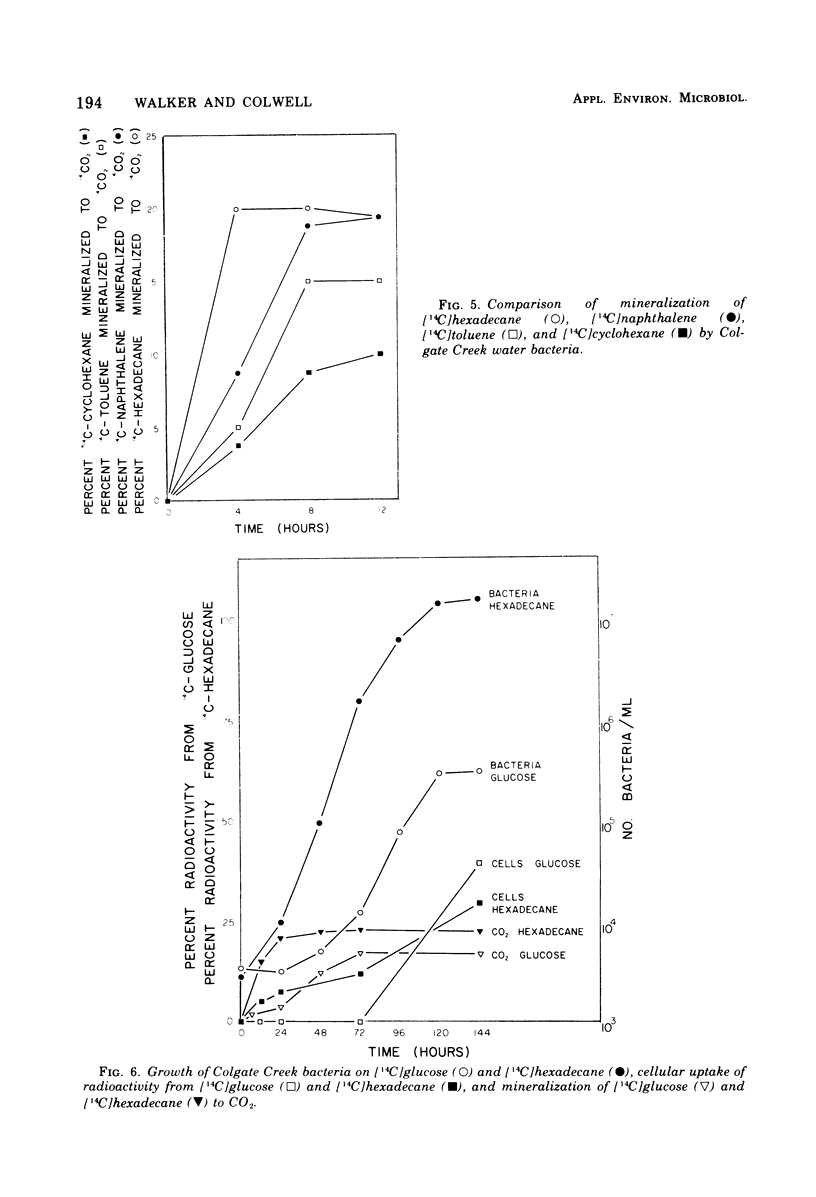
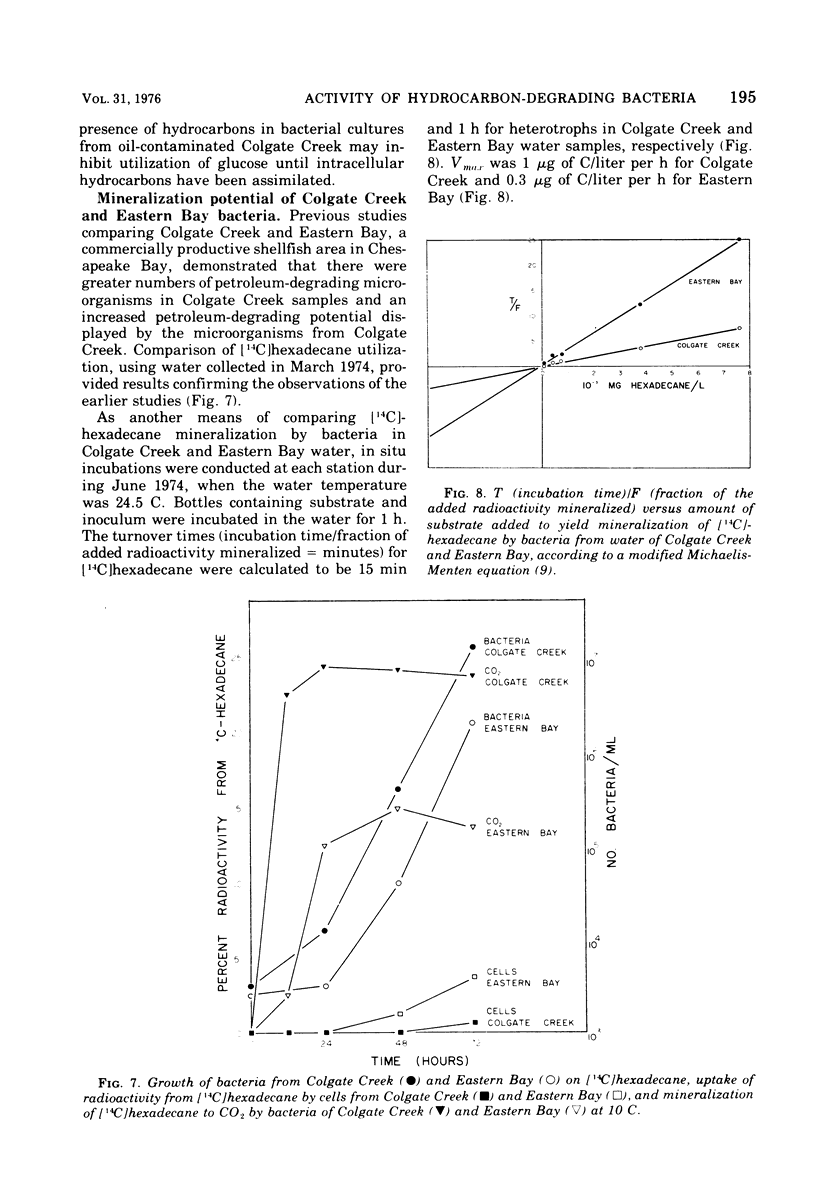
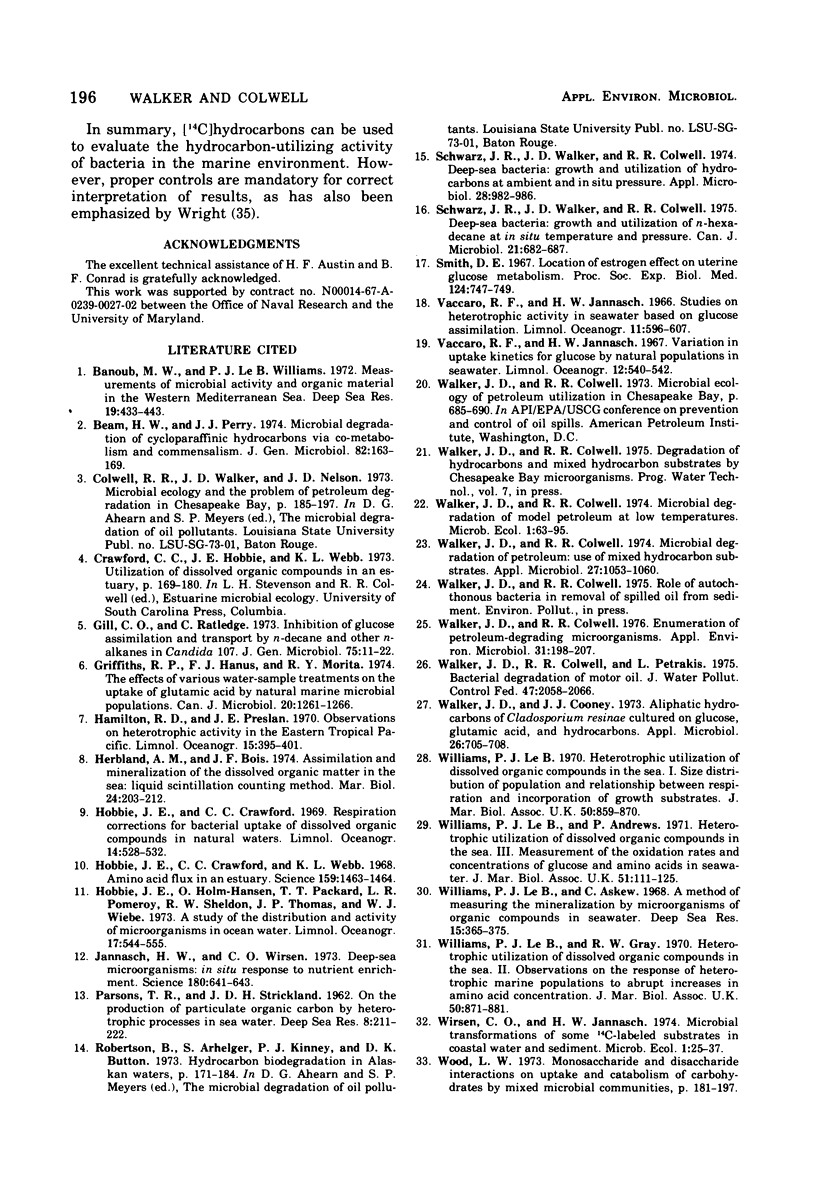

Selected References
These references are in PubMed. This may not be the complete list of references from this article.
- Gill C. O., Ratledge C. Inhibition of glucose assimilation and transport by n-decane and other n-alkanes in Candida 107. J Gen Microbiol. 1973 Mar;75(1):11–22. doi: 10.1099/00221287-75-1-11. [DOI] [PubMed] [Google Scholar]
- Griffiths R. P., Hanus F. J., Morita R. Y. The effects of various water-sample treatments on the apparent uptake of glutamic acid by natural marine microbial populations. Can J Microbiol. 1974 Sep;20(9):1261–1266. doi: 10.1139/m74-194. [DOI] [PubMed] [Google Scholar]
- Hobbie J. E., Crawford C. C., Webb K. L. Amino acid flux in an estuary. Science. 1968 Mar 29;159(3822):1463–1464. doi: 10.1126/science.159.3822.1463. [DOI] [PubMed] [Google Scholar]
- Jannasch H. W., Wirsen C. O. Deep-Sea Microorganisms: In situ Response to Nutrient Enrichment. Science. 1973 May 11;180(4086):641–643. doi: 10.1126/science.180.4086.641. [DOI] [PubMed] [Google Scholar]
- Schwarz J. R., Walder J. D., Colwell R. R. Deep-sea bacteria: growth and utilization of hydrocarbons at ambient and in situ pressure. Appl Microbiol. 1974 Dec;28(6):982–986. doi: 10.1128/am.28.6.982-986.1974. [DOI] [PMC free article] [PubMed] [Google Scholar]
- Schwarz J. R., Walker J. D., Colwell R. R. Deep-sea bacteria: growth and utilization of n-hexadecane at in situ temperature and pressure. Can J Microbiol. 1975 May;21(5):682–687. doi: 10.1139/m75-098. [DOI] [PubMed] [Google Scholar]
- Walker J. D., Colwell R. R. Enumeration of petroleum-degrading microorganisms. Appl Environ Microbiol. 1976 Feb;31(2):198–207. doi: 10.1128/aem.31.2.198-207.1976. [DOI] [PMC free article] [PubMed] [Google Scholar]
- Walker J. D., Colwell R. R. Microbial petroleum degradation: use of mixed hydrocarbon substrates. Appl Microbiol. 1974 Jun;27(6):1053–1060. doi: 10.1128/am.27.6.1053-1060.1974. [DOI] [PMC free article] [PubMed] [Google Scholar]
- Walker J. D., Colwell R. R., Petrakis L. Bacterial degradation of motor oil. J Water Pollut Control Fed. 1975 Aug;47(8):2058–2066. [PubMed] [Google Scholar]
- Walker J. D., Cooney J. J. Aliphatic hydrocarbons of Cladosporium resinae cultured on glucose, glutamic acid, and hydrocarbons. Appl Microbiol. 1973 Nov;26(5):705–708. doi: 10.1128/am.26.5.705-708.1973. [DOI] [PMC free article] [PubMed] [Google Scholar]



